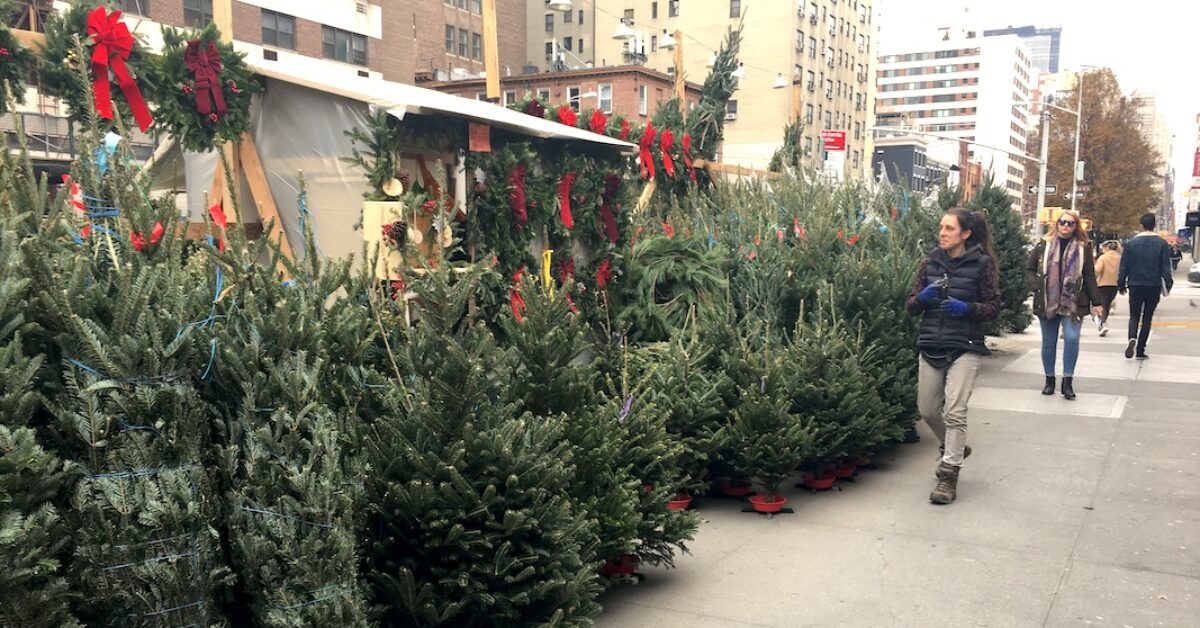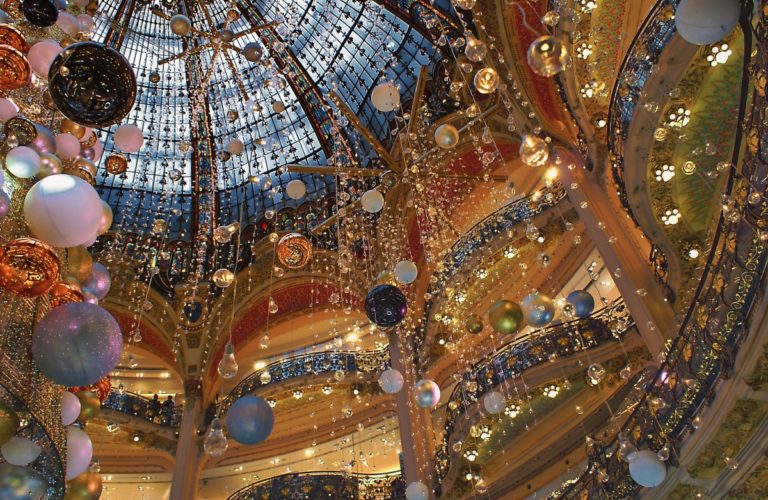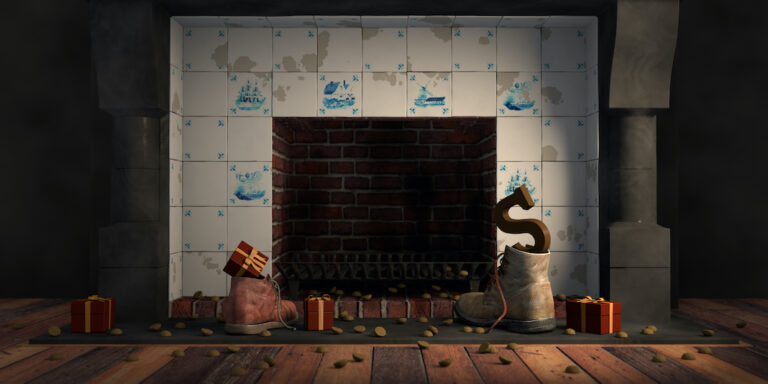If you’ve been hearing a little more French than usual on the sidewalks of New York and don’t know why, look no further than your local Christmas tree street vendor.
Every winter, Christmas tree vendors become an integral part of the cityscape, setting up shop on the sidewalks, criss-crossing lights from post to store and back, selling trees from tiny makeshift cabins, and filling the air with the scent of fresh pine. A 1938 law allows these vendors to take over a part of the sidewalk, without a permit, granted that they have the permission of the neighboring building owner. The tree sellers spend all day on the sidewalk, or in their cabins, and spend the nights sleeping in their vans, watching over their trees. They hail, overwhelmingly, from Quebec.
According to Isa, a 27 year old tree-seller from Quebec who has a stand in Greenwich Village, the system relies heavily on “deals” and unwritten rules. Vendors like Isa spend a month living a rustic life in the city. The tree vendors become a part of the community, interacting with businesses and residents alike. For instance, Isa has made a deal with the 24-hour sex shop across from her stand; in exchange for a tree, she has full use of their bathroom.
Selling trees also allows for, and depends on, lots of social interaction with the customers. François, a tree seller on the Upper West Side from Montréal, explains that being successful requires some “psychological games” because “buying a tree is an emotional experience.” The clients want to know where the tree comes from, and what species it is. “You’ve got to sell them a story.” For many stands, there are no price tags, the vendors and customers haggle to come to an agreement. The price of a tree fluctuates from neighborhood to neighborhood, with some customers eager to dole out for a fancy, expensive tree while others bargain down to the last cent.
If the rumors circulating the stands are to be believed, there’s an American Christmas tree Godfather (à la The Godfather) named Kevin Hammer who is the head of this holiday monopoly. The vendors, often recruited by word-of-mouth, refuse to talk outright about this rumor. Journalists are not welcome. “We don’t know too much,” Isa admits, “Lots of stuff happens under the table… but I don’t think they kill anyone” she adds, laughing.
Isa makes references to “the company,” a pyramidal organization with the “big boss” at the top. Every night, experienced vendors drive around the city and collect envelopes of money from the different stands. All transactions are done in cash — the tree business is lucrative. Isa and her partner usually sell about 40 trees per day on the weekends and 15 on the weekdays. After deducting a percentage for “the company,” tree-sellers earn anything from $5,000 to $15,000 for the month.
So what is it that attracts our northern neighbors to Manhattan for the weeks before Christmas? Historically, the city’s Christmas trees came from Quebec, and the seller came with them. Tradition — another psychological game — reigns, despite the fact that most of New York’s Christmas trees are now grown in North Carolina. French-Canadians also enjoy the work, and are more willing to endure the cold than Carolinians for a bit of cash. For them, New York City is a warm respite from harsh Montréal winters! New Yorkers no doubt also enjoy buying their tree from a Canadian. Additionally, there’s a certain authenticity to that purchase that wouldn’t be there when haggling with a vendor with a heavy Brooklyn accent.
On December 24th, these tree sellers pack up and drive home, after facing one more challenge: customs. Taxes are paid at the border.
So next time you’re buying your Christmas tree, take some time to chat with the person selling to to you. Maybe you’ll get a chance to practice your French or you’ll just end up having a great conversation with an interesting person with a unique job.







